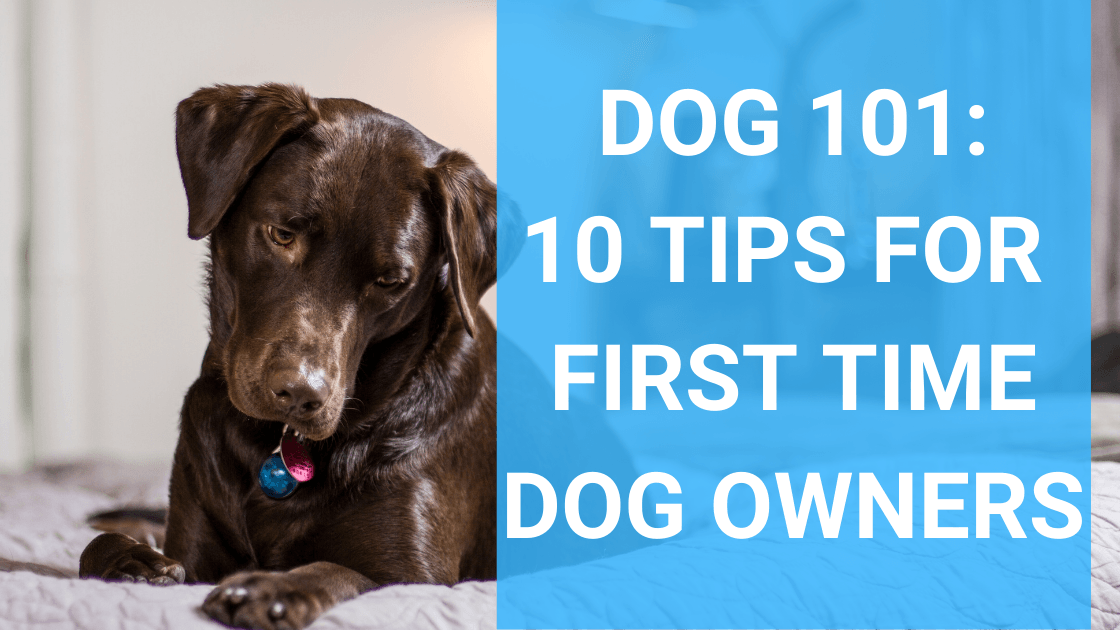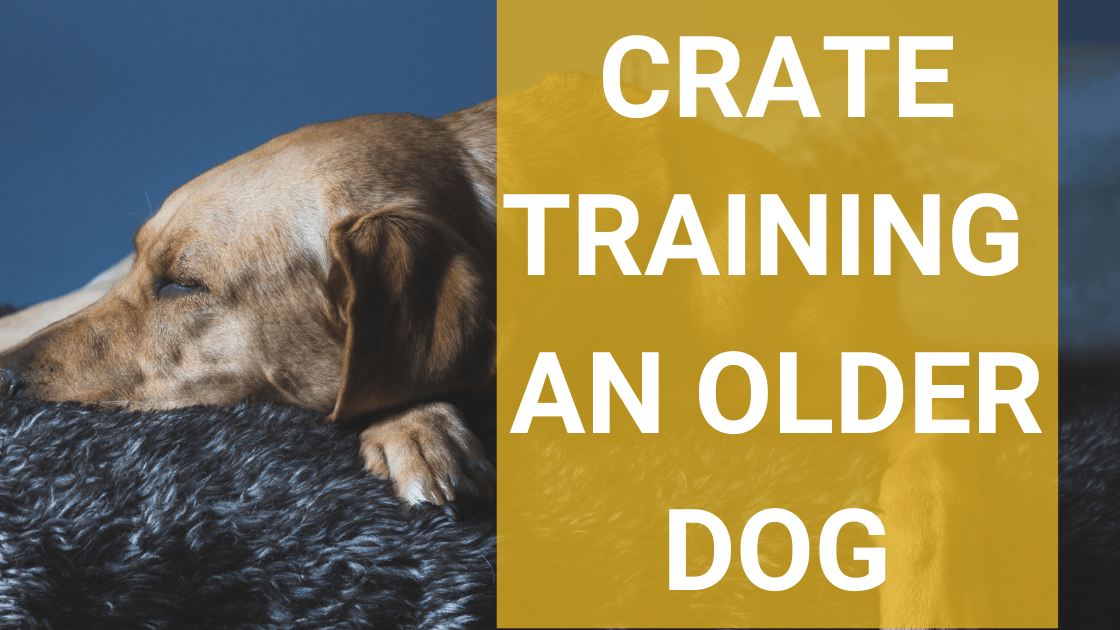Whether you’re in the planning stages or you’ve recently brought home a new dog, this list of tips for first time dog owners is for you!
You see, there’s a lot that goes into owning and caring for a dog. Sure, you know the basics. Take them out a few times a day, go on a walk, and make sure they eat. But there’s actually a lot more to it than that.
If I had to tell you the hallmark of dog 101 it’s this: consistency, and routine. Whether that’s with what you feed them, when you walk them, or how you train them. Stay consistent and things will be just fine.
But I’m not going to leave you hanging there. Read on for my top 9 tips for first time dog owners. You can rock this dog thing with just a little extra know how. With a pack of three dogs, and countless others that have passed on, you’re in good hands.
1. Research your breed or adoptee beforehand
This tip is number one on purpose. Researching your breed, or the dog you plan to adopt, is essential to planning and preparing to bring them into your home. Certain breeds are a lot easier for first time dog owners because they are more adaptable and easily trained.
But even if you are up for the challenge you need to make sure you know what you’re getting yourself into. Make sure you understand what their grooming, dietary, and exercise needs are like. What’s more, find out about typical behavior characteristics, too.
Too often first-time dog owners get caught up in the look of their dog, and suddenly have a dog on their hands that doesn’t fit their lifestyle. A classic example is a Siberian Husky. These beautiful dogs are surrendered at higher rates than other breeds because they are serious handful due to their extremely high exercise needs and clever personalities.
If you plan to adopt a mixed breed, you can still ask a lot of questions before adopting to learn as much as you can from the shelter or agency before bringing your first dog home.
Related Reading: 7 Mellow Dog Breeds for Large Dog Lovers
2. Weigh the benefits of buying vs adopting
Next, if you’re still in the planning stage, think through whether adopting or buying a dog is the right choice. In many cases, adopting is the way to go. You can opt to adopt an older dog and skip the puppy stage, and you can give a stable loving home to a dog in need. Often you can even adopt pure bred dogs if you have your heart set on a certain breed.
However, I’m certainly not here to judge if you want to buy a puppy. Many people are excited about getting a puppy of a certain breed, knowing their history and health. If you do decide to buy a puppy be sure to research and find a reputable breeder who uses ethical and safe breeding practices.
3. Pros and cons of adopting a puppy vs an adult dog
Still on the fence of whether an adult dog or puppy is right for you? As a first time dog owner, adopting an adult dog can be a lot easier and a great way to get used to dog ownership.
On the other hand, adopting or buying a puppy give you the opportunity to train them from the beginning and you won’t have the obstacle of your dog’s potentially negative or challenging past.
Here are some of the pros of adopting an adult dog:
- You can skip the challenging puppy stage
- Many adult dogs are housetrained and have basic commands, even if they were surrendered to a shelter
- If the dog is older than 4, their exercise needs, and general energy level won’t be as intense
- Adult dogs can be easier to train and less of a handful than puppies
- Adult dogs have a harder time finding homes
Here are some pros of adopting a puppy:
- You will be the first and only owner
- There aren’t bad habits or negative experiences to cope with
- If you’re planning to use your dog for hunting, therapy, herding, or in some other work-like capacity, getting them as a puppy can make training easier
4. Prepare for training from day one
Whether you’ve chosen a puppy or an adult dog as a first-time dog owner, approaching training from day one is important. Dogs thrive on consistency!
For this reason, you want to set the stage on what’s acceptable and expected from the moment they come into your home. Make sure you have a plan in place for house training, basic obedience, crate training, etc. so that you can get started right away.
5. Gather up the proper gear
Before you bring your dog home, you’ve got to have the right gear ready to go. Bringing a dog home to an unprepared house can be a big mistake.
Here’s a quick list to get you going:
- Crate
- Collar, tags, leash
- Feeding and water bowls
- Dog bed
- Dog food
- Grooming supplies
- Dog-proofing supplies
- Toys and dog chews
Head to the New Dog Checklist for more details on these items and other ways to prepare!
6. Crate train your dog
Too many first-time dog owners think they won’t need a crate. Don’t make this mistake! Crate training will make your life so much easier and will provide your dog with a safe and positive space of their own. As long as you never use the crate for punishment or in a negative way, your dog’s create becomes their den.
It will give you peace of mind that they are safe and staying out of trouble, and it can accelerate training efforts and house training.
To read more about the pros of crate training and how to get it done, head here for an overview of crate training your puppy, and here for details specific to crate training your adult dog.
7. Understand the costs associated with dog ownership
I think that first time dog owners don’t realize just how expensive owning a dog can be. In the first year you can expect to spend between $1500 and $2000!
This factors in the start-up cost of all the gear and initial vet care, plus monthly expenses like food and the odd trip to the groomer. The cost goes up if you need to invest in a doggie daycare or dog walker.
After the first year it’s estimated that you’ll spend between $1000-$1500 each year of your dog’s life depending on their needs and your lifestyle. Again, things like boarding, day care, and regular grooming will put you on the higher end of the spectrum (or even over it!). (source)
Related Reading: Is Pet Insurance Worth the Cost?
8. Commit to your dog’s exercise needs
Don’t underestimate just how much exercise your dog is going to need––especially if you choose to adopt a puppy or young adult dog (less than 4 years old). And don’t be fooled into a false sense of security when your 3-month-old puppy naps a lot.
Dogs are often at their wildest and peak exercise needs between 9 months and 3 years old. Be ready to exercise your dog 2-3 times per day, or pay the price in the form of destructive, unwanted behavior! This is especially true if you choose a working breed dog like a Labrador, German Shepherd, Pointer, Beagle, etc.
Related Reading: Exercise Your Dog in Every Weather and Season
9. Keep a consistent schedule
I’ve said it once and I’ll say it again, consistency and routine are key! Your dog doesn’t know the difference between a Saturday and a Tuesday. It’s important that your dog can expect to eat, exercise and go outside at roughly the same times every day.
This is equally as important for adult dogs and puppies. If you adopt an adult dog, the transition will be far easier with a solid routine.
You’ve got this, First Time Dog Owner!
Yes, I’m talking to you! Owning a dog comes with a set of challenges and commitments, but if you’re here, I already know you’re going to be a great owner. At the end of the day if you’re willing to provide what your dog needs and learn what you can do to help them, everything is going to be okay.
And we’re here to help you pick up the slack!
Be sure to browse our collection of helpful articles on the blog, and invest in our Complete Field Guide for Large Dogs. It's perfect for first time dog owners--have all your questions answered in one place, right at your fingertips, in an easy to navigate format!



